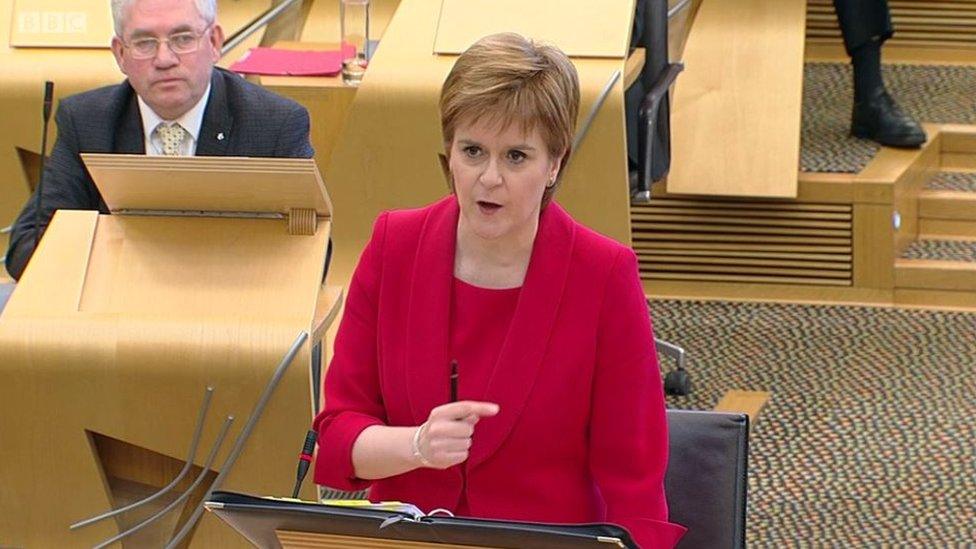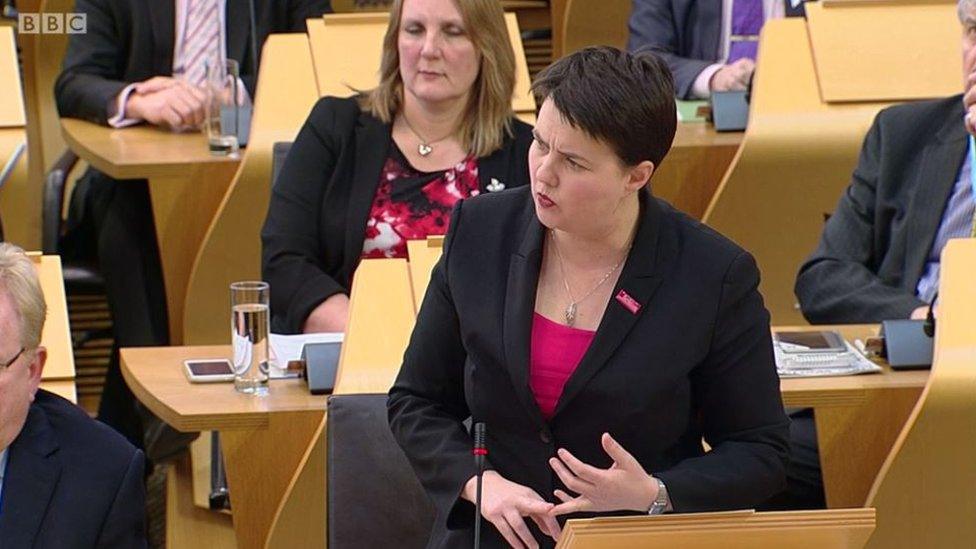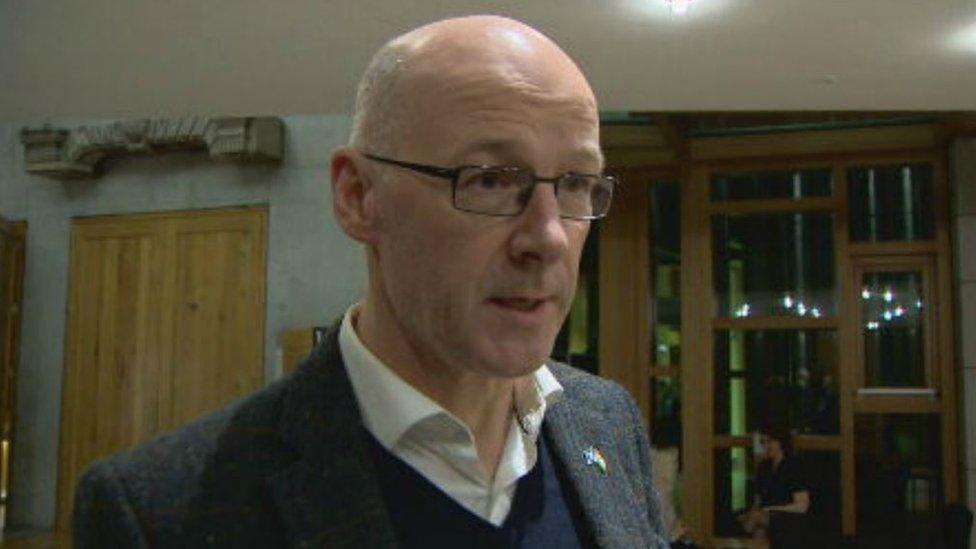Sturgeon rejects call to 'ditch' named person policy
- Published

Nicola Sturgeon said attacks on the named person policy by the Conservatives were politically motivated
Nicola Sturgeon has rebuffed calls for the Scottish government to "ditch" its controversial named person policy.
Holyrood's education committee has put the brakes on legislation aimed at bringing the scheme into force.
Scottish Tory leader Ruth Davidson said the policy was "in tatters" and said ministers should "ditch this broken plan" to find a better approach.
The first minister accused the Tories of "politically undermining" the scheme and said many family groups backed it.
The policy could be on ice for another year after MSPs on the education committee refused to let legislation move forward until key documents are provided to them - something Education Secretary John Swinney has said could take until September 2018 "at the earliest".
The scheme would see a named adult, normally a teacher or health visitor, become responsible for ensuring the wellbeing of every child.
It was originally passed into law by MSPs in 2014, but became tied up in legal challenges which culminated in the Supreme Court ruling that information-sharing practices would be in breach of the European Convention on Human Rights over rights to privacy and a family life.
A bill aimed at fixing these specific issues with the policy has been tabled at Holyrood, but is unable to progress to its first chamber vote until the education committee publishes a report either backing or opposing its general principles.
A majority of committee members, including members of all opposition parties, voted that consideration should be postponed until a draft code of practice was available for proper scrutiny.

Ruth Davidson said the policy was "a mess" and "in tatters"
Ms Davidson told the first minister that the policy "is a mess and it's only her and the deputy first minister that can't seem to see it".
She said that while "everybody wants protection for vulnerable children", it was "now clear that parliament has joined the public in no longer having confidence in these plans".
She said: "We should focus resources on those who actually need it rather than having blanket interference for every family in Scotland.
"We are willing to get round the table to find a fresh solution to this but first the first minister needs to ditch this broken plan, because her named person policy in tatters. Can she simply concede that so we can all move on?"

Analysis by Brian Taylor, BBC Scotland political editor
The plan, you may recall, is to identify an individual Named Person to monitor the wellbeing of every child and young person in Scotland.
Critics tend to fall into two camps. Some are simply agin the legislation full stop, regarding it as unwarranted intrusion. Others are potentially supportive but want clarity of information.
Ms Davidson wanted the first minister to dump the bill and start again. Ms Sturgeon declined - but did so moderately and modestly.
She knows the legislation is in trouble. She knows that diplomacy is more likely to prevail than stridency. So she sought to assuage concerns.

The first minister said she was "disappointed" with the committee's "unnecessary" decision, saying her government would work with the committee and the parliamentary authorities on the next steps.
Holyrood's standing orders state that parliamentary consideration of the bill can only continue "in light of the lead committee's report".
Ms Sturgeon also accused the Conservatives of trying to "politically undermine the named person policy at every juncture", citing a lengthy list of family organisations which had called for consideration of the bill to continue.
She said: "This bill is not about the principle of named person, it's about the information sharing that is necessary to ensure vulnerable children don't fall through the gaps in services.
"If this is about the protection of children rather than political point-scoring, then I think that's the way all of us should be determined to proceed."

John Swinney said the government remained "committed" to the named person policy
Some education committee members have underlined that their votes were not motivated by opposition to the policy itself, but the need for scrutiny.
Green MSP Ross Greer said he would "move heaven and earth to make this work", but said he did not want to see "undeliverable legislation sinking the whole thing or another Supreme Court defeat".
He also argued that the named person scheme would not have been able to be implemented until after the code of practice was completed in any case, so any true delay would be "slight".
Labour MSP Daniel Johnson also said that a "pause is not rejection", adding that it was the government's "stubborn and arrogant approach that has created the problem and is running the policy into the buffers".
Lib Dem Tavish Scott, meanwhile, hinted that Mr Swinney's approach to the matter had played a part, saying that "no committee will be told what to do by a government minister who throws his weight around".
Mr Swinney said the government remained "committed" to the named person policy, saying it was "really important" to press ahead with plans.
- Published6 December 2017
